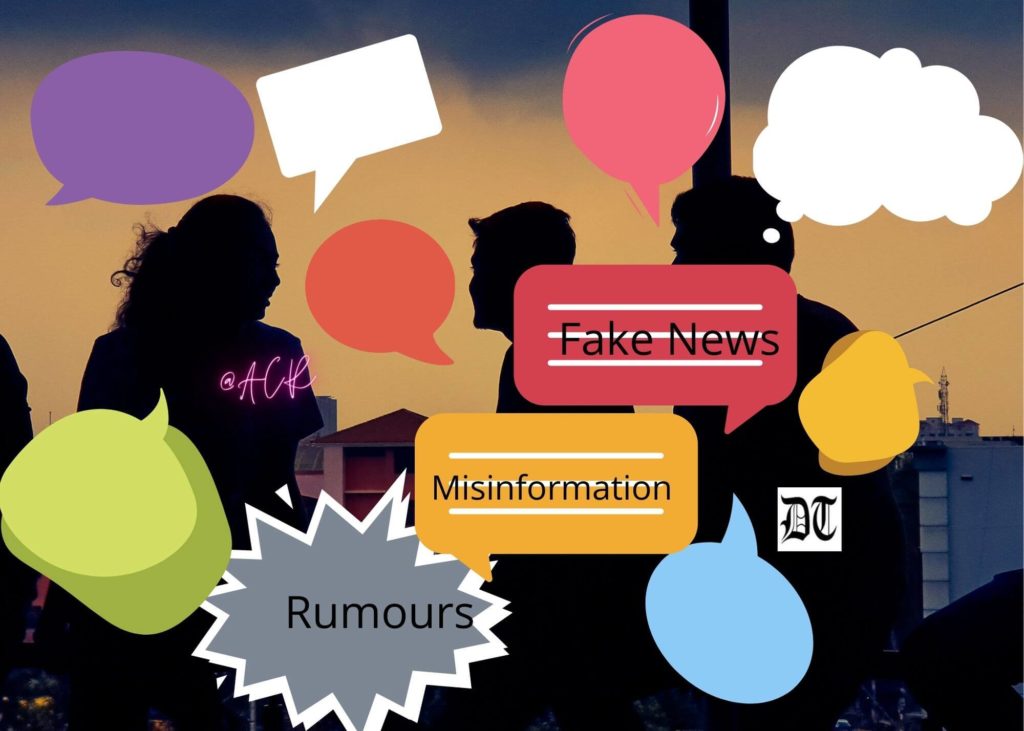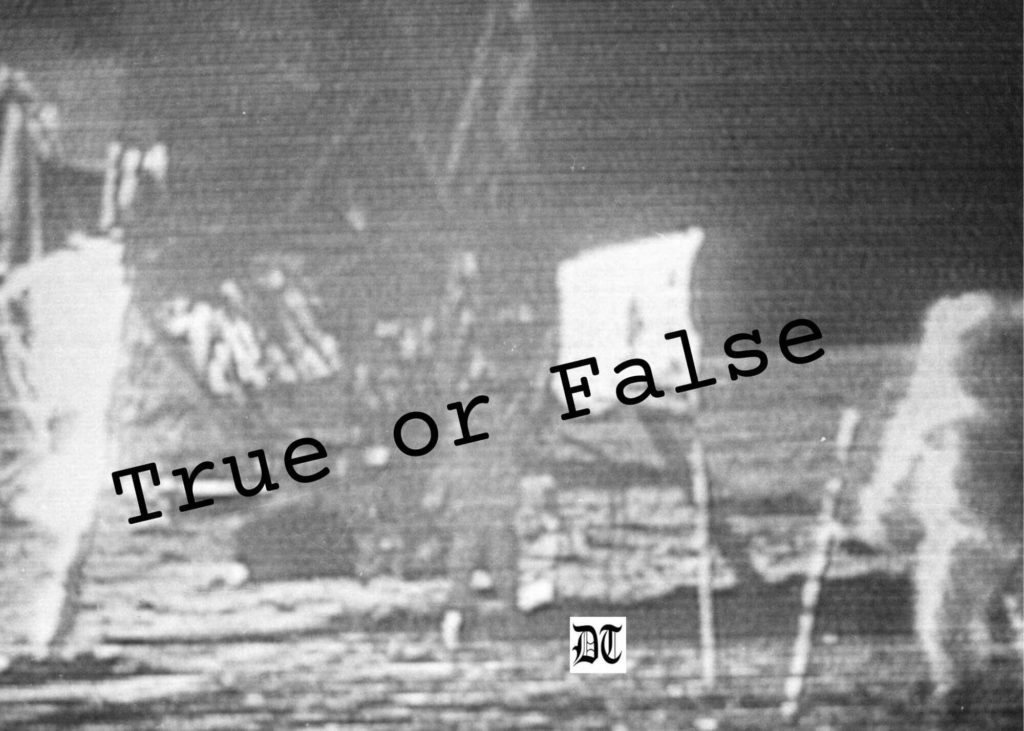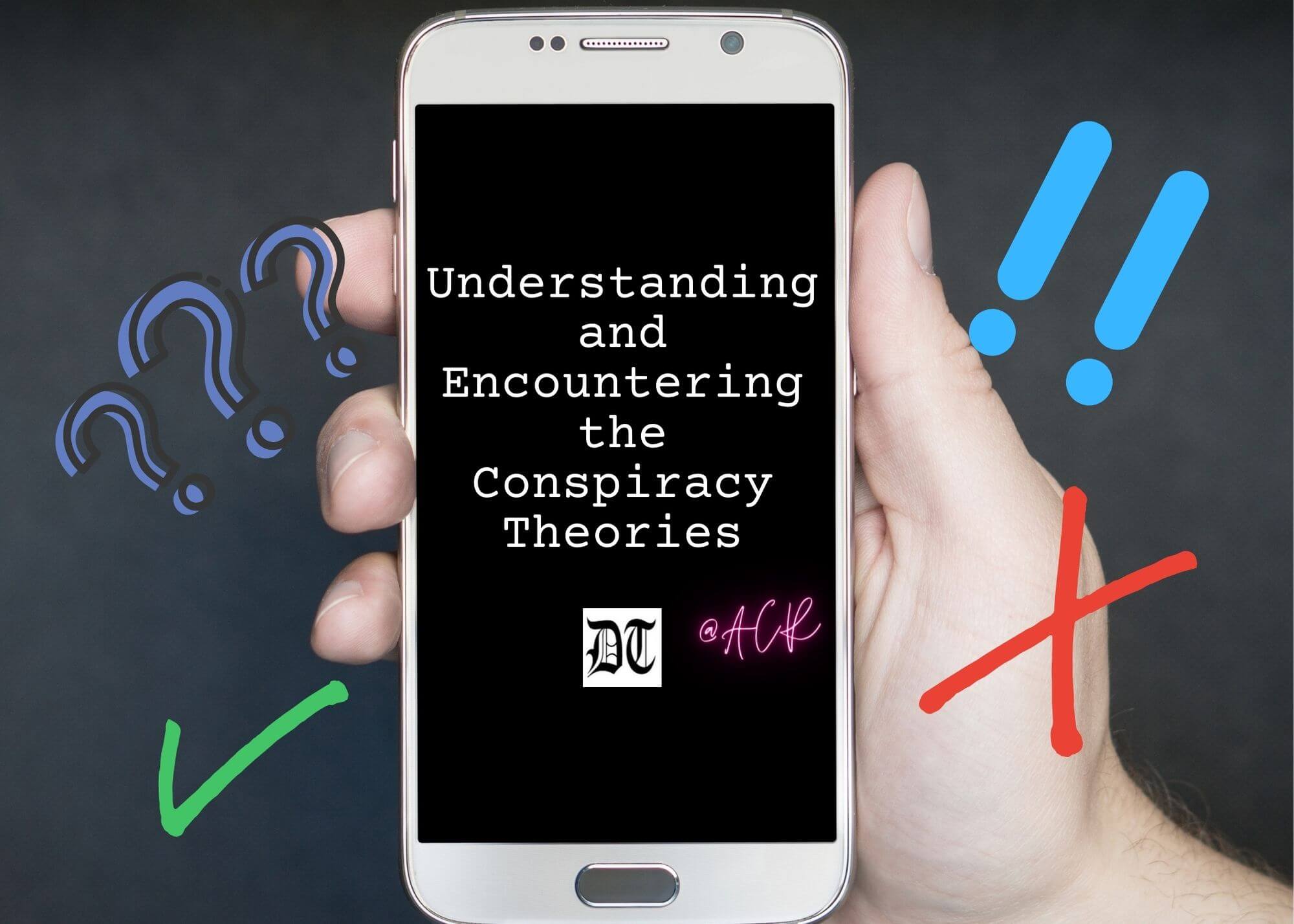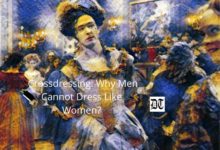Tabassum Tahimina tells us about the conspiracy theories. An exclusive for Different Truths.
Rumour is a pipe Blown by surmises, jealousies, conjectures And of so easy and so plain a stop. That the blunt monster with uncounted heads, The still-discordant wavering multitude, Can play upon it. ~ William Shakespeare, Henry IV, Part 2, Act 1 Prologue.
Nowadays, rumours and conspiracy theories are prevalent in social media. Why rumours and conspiracy theories spread, and why do people pay heed to this misinformation? Rumours and conspiracy theories are not a modern phenomenon. One of the earliest records of a conspiracy theory in history is from the year 64 AD.
A fire broke out in Rome in 64 AD. The fire was so devastating that it burned two-third of Rome to ashes. By chance, Emperor Nero was out of Rome when the fire broke out.
In the era of the Roman Empire, the emperor around that time was Emperor Nero. A fire broke out in Rome in 64 AD. The fire was so devastating that it burned two-third of Rome to ashes. By chance, Emperor Nero was out of Rome when the fire broke out. When he returned to Rome, he had to tackle the disaster. He began the process of rebuilding Rome and built a majestic palace for himself. The rumour started amongst the people that Nero started the fire to clear off everything and destroy all the buildings to construct a palace for him. It is one of the oldest records of rumours and conspiracy theories. What is interesting is that this rumour was not one-sided. Nero retaliated by spreading another rumour or conspiracy theory against the Christians community. He alleged that the Christians were responsible for the fire. And then Christians were executed, and atrocities against them followed.
Similarly, several conspiracies against the Jews were formulated in Germany in the 1940s. They were blamed for the things they were not even responsible. And we know the end worst result -the worst genocide in the history of humankind.
First, rumour and conspiracy theory is spreading misinformation and feeding people with lies. Sometimes, it is harmless. But suppose these conspiracy theories and rumours target a specific community or target a particular person. In that case, its negative consequences can be felt to a considerable extent. Therefore, we must find out why these conspiracy theories originate. How they spread? And can stop them and logically counter them? Why do people believe in them? What are the reasons behind them? The reasons can be divided into two main categories. One is psychological, and the other is social. Let’s shed light on the psychological causes. Several research papers have shown that conspiracy theories are a means of understanding the complex world and organising information for humans. Especially the extraordinary, earth-shattering events that do not have a clear explanation.
… everyone knows how many flights and ships have gone missing from the Bermuda Triangle. But we do not have an explanation.
We do not know the exact causes behind them. So, we try to fill in the missing information with our curiosity. Humans have such a tendency. For example, everyone knows how many flights and ships have gone missing from the Bermuda Triangle. But we do not have an explanation. So, several people have a conspiracy theory that aliens carry the flights and ships away, similarly, in the recently disappeared Malaysian Airlines case. Nobody knows the explanation. So, again the result is a conspiracy theory which is Aliens are responsible.

Another reason for believing the rumours and conspiracy theories are the incredibly unique events that had very few chances of happening, but they did happen. Like Covid-19. There is another reason which is called “illusionary pattern perception”. Humans tend to look for a pattern always to connect the dots. We try and relate different events with one another. So basically, we try and look for a pattern even when there is none. No matter how completely random the things are, we still try to explain or design.
Some people have a higher tendency to do this when compared to others. But if one takes this to an extreme level and applies it to every aspect of their lives, it might change their thinking. This type of thinking is called “teleological thinking”. If you ask a three-year-old child -why does its rain? They might answer that it rains because the plants and the trees get thirsty and when it rains their thirst is quenched. Or you can ask them why are there leaves on a tree? They might answer that the trees grow leaves to give shade to the animals. What are the essential characteristics in such a way of thinking? The children think that there is a purpose /intention behind everything. It rains because of a purpose.
There are countless rumours and conspiracy theories regarding Covid-19.
Similarly, a conspiracy theorist tries and accord purpose and intention to extraordinary events. Like is coronavirus spreading these days? There are countless rumours and conspiracy theories regarding Covid-19. Because some people are not satisfied with random explanations that coronavirus is spreading because it is originated randomly. And no one is behind this. Unexpected events frequently happen across the world.
Talking about the social category of events, then “seeking validation” comes first. Those people who are more isolated and feel more left out by society if they have not achieved much or are uneducated. These people attempt to discern validated and superior and show well-informed and spread rumours and conspiracy theories. They think by doing so, and they stand out more in their social circles. They want to show that they are more informed than the rest on political and social events. This conclusion was put forward by research.
The social reasons for spreading rumours and conspiracy theories are more complex and complicated.
The social reasons for spreading rumours and conspiracy theories are more complex and complicated. In this context, the rumours are spread with political intentions as we saw in Emperor Nero. He formulated a conspiracy theory to save himself, to salvage and to improve his political image. So, this could be the reason behind spreading them.
Research tells us that people going through a crisis or are seeing disasters happen. There are higher possibilities of this spread of rumours and conspiracy theories. For example, the conspiracy theory about the “Illuminati” spread during the time of yellow fever. A lot of conspiracy theories applied after the 9/11 attack. I have been told that the people who feel powerless or suffer from anxiety or some existential crisis believe more in rumours and conspiracy theories. Because they want to make someone a scapegoat, they want to hold someone responsible for their problems.
How can we recognise that something is a rumour or conspiracy theory? How can we tell that its possible something might have happened in one case but be able to say that it is a conspiracy theory or rumour in another case? There are some characteristics of all conspiracy theories and stories. First, every rumour or conspiracy theory has one evil mastermind who runs the entire rumour or conspiracy theory. In the rumour or conspiracy theory, the mastermind is evil. It formulates all the plans as he or she is behind everything. For example, Bill Gates is the villain in the coronavirus conspiracy theory. It is George Soros in some conspiracy theories. It is the Illuminati in some conspiracy theories.
For conspiracy theorists, co-relation is always causation.
Secondly, another characteristic is that there is an attempt to relate unrelated things in every conspiracy theory. And it showed how many things happened because of other things happening. They say, “Co-relation is not causation”. For conspiracy theorists, co-relation is always causation. They think that this unrelated event indeed happened because of some other event.

Thirdly, most conspiracies involve a colossal group of people who keep it concealed. For example, if you take Moon landing, some people say that Moon landing never happened and it is a perpetual lie. But if you point out that there are so many astronauts of NASA and they can ask any one of them as they have all been to space. They can verify the truth. They would say that the NASA people are involved in it as well. All of the astronauts are in the conspiracy Which is too unrealistic to think about. That thousands of astronauts are all keeping quiet in a collaboration. Can it happen that no one says anything to anyone, and all are the part of the conspiracy? No matter how secretive an organisation is, there are whistleblowers even there. If it were something like that, then there would be whistleblowers who would raise their voices and inform everyone. So, therefore this does not make sense.
Fourthly, most rumours and conspiracy theories have contradictions. A conspiracy theory would say that something happened. But if you try and dig up facts and research that the facts contradict their beliefs. Several times, conspiracy theories are self-contradictory. For example, George Soros is famous in many countries across the world. In the UK, George Soros is formulating a liberal and communist conspiracy against Western countries that he wants to open up to their borders and invite Africans and Arabs to their country. Here conspiracy theorists are implying that George Soros is supporting the Islamists. In the USA it is said that he is formulating a Jewish conspiracy against Christians. In India, it is said that he is developing a conspiracy against Hindus after aligning with Islamite and Christians. All these conspiracies are self-contradictory.
No matter what fact you put up against it, those facts will become a part of a conspiracy for the conspiracy theorists.
The fifth and the most important is, it is next to impossible to disapprove any conspiracy theory. No matter what fact you put up against it, those facts will become a part of a conspiracy for the conspiracy theorists.
So now the question is how to counter conspiracy theories? How can we curve their spread? The first and easiest method is valid for any misinformation. Think before you share the information. Think about whether what you are just about to share is correct or not. Google it once, and you will get the results of the fact-checking websites. Most of the times, the most common conspiracy theories and the misinformation have already been fact-checked. And you can see the truth yourself. But what will you do when there is no fact check available? Think critically.
Whenever you see something on the internet, first, check whether they have characteristic of conspiracy theories. Suppose you identify them by looking at the contradictions within the conspiracy theory. After that, think scientifically. Consider any statement or approach that you have heard like a hypothesis. Then you look for arguments in favour and against it. Compare both and see which arguments make more sense and are more logical. And finally, remember that correlation is not equal to causation.
Acknowledgement
1. The Psychology of Conspiracy Theories by Karen M. Douglas, Robbie M Sutton and Aleksandra Cachucha (School of Psychology, University of Kent)
2. A psychologist explains why people cling to conspiracy theories during uncertain times, Business Insider, June 4, 2020
3. Pandemics go hand in hand with conspiracy theories by Frederick Kofun, The New Yorker, May 13, 2020.
Visual by Different Truths





 By
By

 By
By